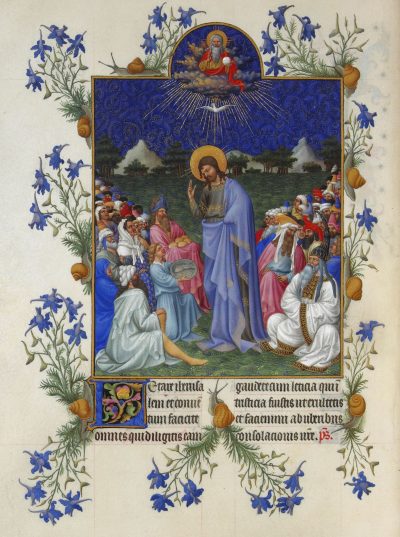 Readings:
Readings:
2 Kings 4:42–44
Psalm 145:10-11, 15–18
Ephesians 4:1–6
John 6:1–15
Today’s liturgy brings together several strands of Old Testament expectation to reveal Jesus as Israel’s promised Messiah and King, the Lord who comes to feed His people.
Notice the parallels between today’s Gospel and First Reading. Both Elisha and Jesus face a crowd of hungry people with only a few “barley” loaves. We hear similar words about how impossible it will be to feed the crowd with so little. And in both the miraculous multiplication of bread satisfies the hungry and leaves food left over.
The Elisha story looks back to Moses, the prophet who fed God’s people in the wilderness (see Exodus 16). Moses prophesied that God would send a prophet like him (see Deuteronomy 18:15–19). The crowd in today’s Gospel, witnessing His miracle, identifies Jesus as that prophet.
The Gospel today again shows Jesus to be the Lord, the good shepherd, who makes His people lie down on green grass and spreads a table before them (see Psalm 23:1, 5).
The miraculous feeding is a sign that God has begun to fulfill His promise, which we sing of in today’s Psalm—to give His people food in due season and satisfy their desire (see Psalm 81:17).
But Jesus points to the final fulfillment of that promise in the Eucharist. He does the same things He does at the Last Supper—He takes the loaves, pronounces a blessing of thanksgiving (literally, “eucharist”), and gives the bread to the people (see Matthew 26:26). Notice, too, that twelve baskets of bread are left over, one for each of the Apostles.
These are signs that should point us to the Eucharist—in which the Church founded on the Apostles continues to feed us with the living bread of His Body.
In this Eucharist, we are made one Body with the Lord, as we hear in today’s Epistle. Let us resolve again, then, to live lives worthy of such a great calling.